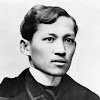As the global elderly population continues to grow, it's becoming increasingly important to understand the unique needs and challenges facing this demographic. From physical and cognitive decline to social isolation and age-related discrimination, elderly people face a variety of issues that require attention and support. In this article, we'll explore 50 facts about elderly people and provide insight into how we can better meet their needs and promote their health and well-being.
50 Facts About Elderly: Understanding Aging, Health, and Well-Being
- The definition of "elderly" varies, but it is generally considered to refer to people over the age of 65.
- The world's elderly population is growing rapidly due to increased life expectancy and declining birth rates.
- By 2050, the global elderly population is projected to reach 2 billion.
- Women tend to live longer than men, so they make up a larger percentage of the elderly population.
- In many cultures, elderly people are respected for their wisdom and experience.
- Elderly people may experience physical and cognitive decline, but this varies widely depending on factors such as genetics, lifestyle, and access to healthcare.
- Many elderly people experience chronic health conditions such as arthritis, diabetes, and heart disease.
- Social isolation and loneliness can be significant problems for elderly people, especially those who live alone.
- Elderly people are more susceptible to falls and accidents, which can result in serious injuries.
- Many elderly people rely on government programs such as Social Security and Medicare to meet their basic needs.
- Elderly people are more likely to experience poverty than younger age groups.
- Elder abuse, including physical, emotional, and financial abuse, is a significant problem for many elderly people.
- Elderly people are more likely to be victims of scams and fraud.
- Elderly people may experience age-related discrimination in the workplace or in other areas of life.
- Retirement can be a significant transition for many elderly people, as they adjust to a new routine and potentially reduced income.
- Many elderly people choose to downsize their homes or move into retirement communities to make their lives more manageable.
- Elderly people may experience grief and loss as they outlive friends and family members.
- Elderly people can continue to engage in hobbies and interests throughout their lives.
- Many elderly people volunteer and give back to their communities.
- Elderly people may experience changes in their sleeping patterns, including difficulty falling or staying asleep.
- Elderly people may experience changes in their appetite and dietary needs.
- Elderly people may experience changes in their vision, including cataracts and macular degeneration.
- Elderly people may experience changes in their hearing, including hearing loss.
- Elderly people may experience changes in their sense of taste and smell.
- Elderly people may experience changes in their bladder and bowel function.
- Elderly people may experience changes in their sexual function.
- Elderly people may experience changes in their skin, including dryness, thinning, and wrinkles.
- Elderly people may experience changes in their bones, including osteoporosis and fractures.
- Elderly people may experience changes in their muscle mass and strength.
- Elderly people may experience changes in their balance and coordination.
- Elderly people may experience changes in their cognitive function, including memory loss and confusion.
- Exercise and physical activity can help elderly people maintain their physical and cognitive function.
- Social engagement and mental stimulation can help elderly people maintain their cognitive function.
- Elderly people may benefit from counseling or therapy to address emotional or psychological issues.
- Elderly people may benefit from assistive devices such as hearing aids, walking aids, and home modifications.
- Elderly people may benefit from medication management to address chronic health conditions.
- Elderly people may benefit from regular check-ups and screenings to monitor their health.
- Elderly people may benefit from vaccinations to prevent infectious diseases.
- Elderly people may benefit from flu shots to prevent seasonal influenza.
- Elderly people may benefit from pneumonia vaccines to prevent pneumonia.
- Elderly people may benefit from shingles vaccines to prevent shingles.
- Elderly people may benefit from regular dental care to maintain oral health.
- Elderly people may benefit from a healthy diet that is rich in nutrients and low in processed foods.
- Elderly people may benefit from staying hydrated to maintain proper bodily function.
- Elderly people may benefit from regular exercise to maintain physical and mental health.
- Elderly people may benefit from staying engaged with their communities through social activities, volunteering, or other pursuits.
- Elderly people may benefit from staying mentally active through reading, puzzles, or other mental challenges.
- Elderly people may benefit from staying connected with family and friends, even if they live far away.
- Elderly people may benefit from exploring new hobbies or interests to stay engaged and maintain a sense of purpose.
- Elderly people have a wealth of life experience and knowledge to share with others, and their contributions should be valued and celebrated.
The 50 facts about elderly people highlight the complexities of aging and the importance of providing support and resources to this growing demographic. By understanding the challenges facing elderly people and taking steps to address their needs, we can help promote their health, well-being, and quality of life. Whether through government programs, community initiatives, or individual efforts, we all have a role to play in ensuring that elderly people are valued, respected, and supported throughout their lives.














0 Comments